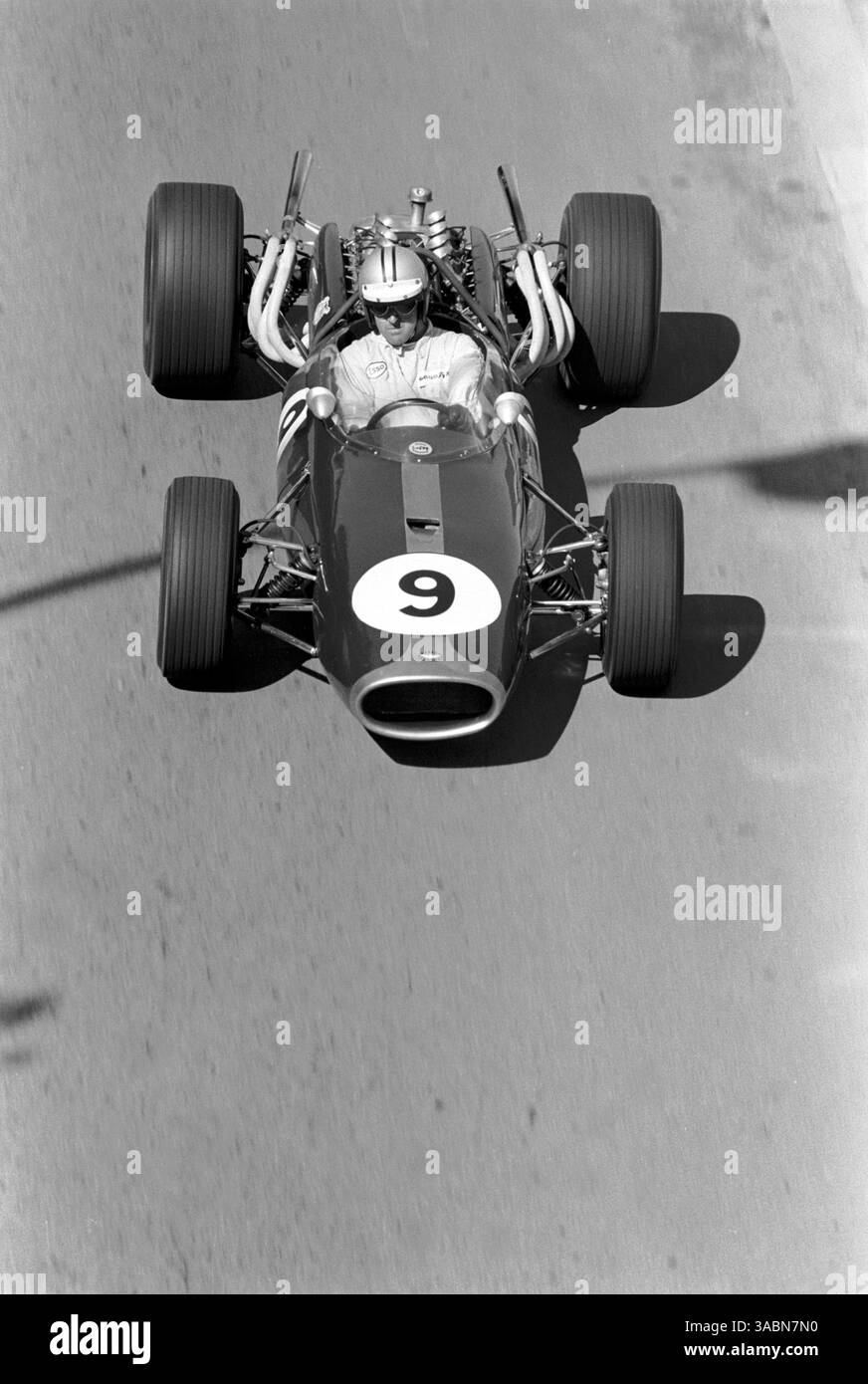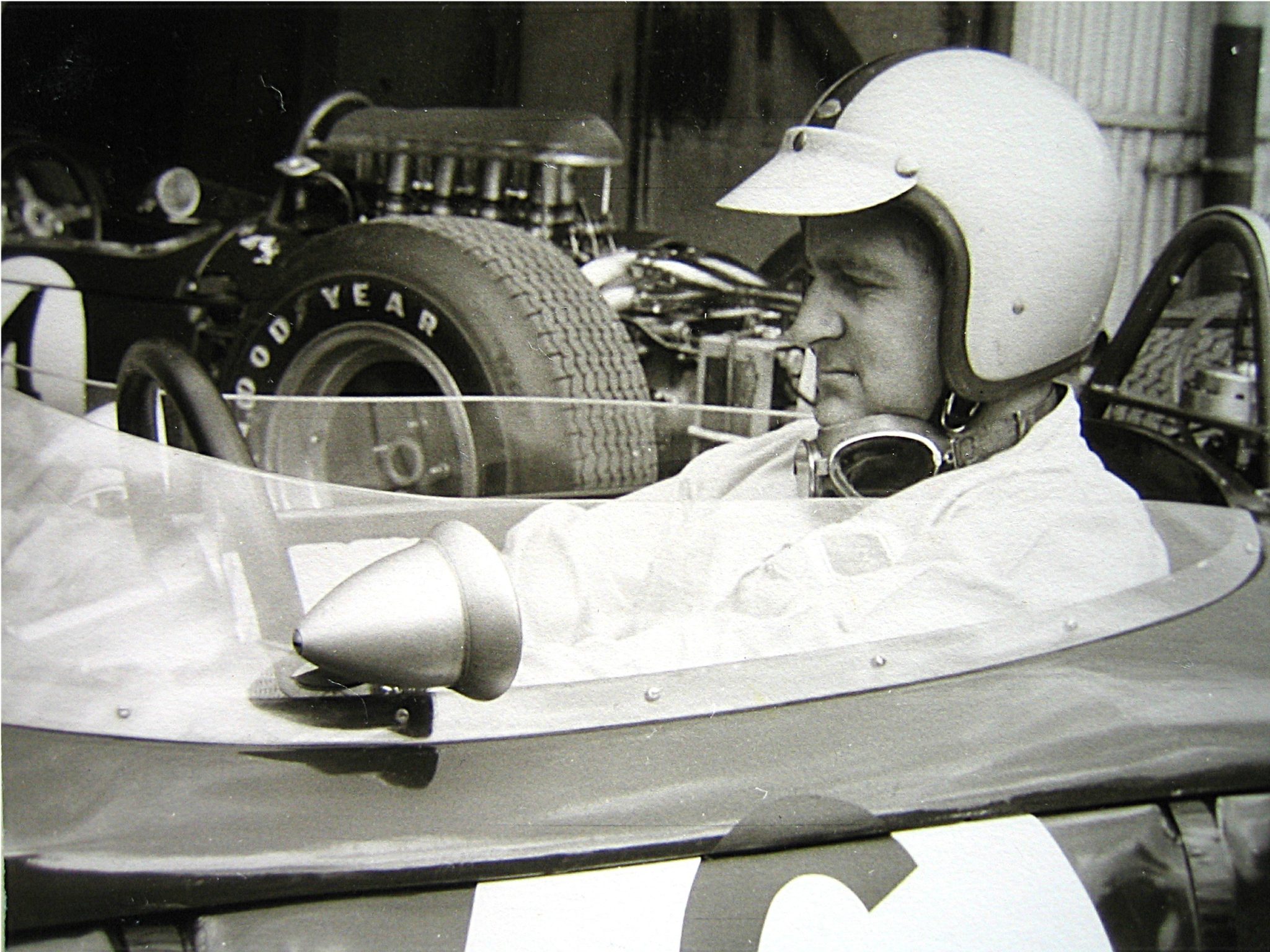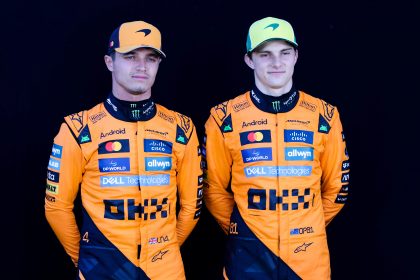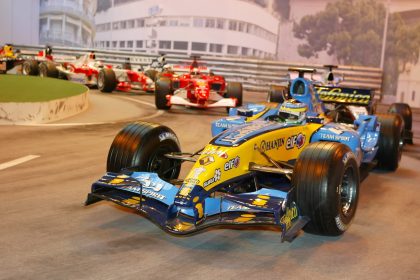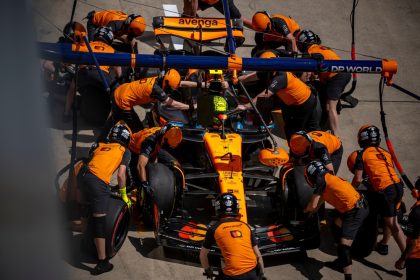Denny Hulme: The Bear Who Roared Only for Victory
The Reluctant Champion Turns 89
Today, June 18, 2025, marks what would have been Denny Hulme’s 89th birthday. In a sport obsessed with headlines, glamour, and the cult of personality, Hulme remains the ultimate paradox: a world champion who never sought the spotlight, a legend who never asked to be called one, and an underdog whose only demand was to be measured by the cold, hard currency of victory. In an era where every driver’s breakfast is live-streamed and every podium is a social media event, Hulme’s story is a bracing reminder that greatness sometimes prefers to work in silence.
The Bear from Te Puke
Born in the rural heartlands of New Zealand, Denny Hulme’s journey to Formula 1 was as unvarnished as his personality. The son of Clive Hulme, a Victoria Cross-winning sniper from World War II, Denny learned to drive trucks on his father’s lap and was hauling cargo across New Zealand’s winding roads by his teens. His first forays into motorsport were in local hillclimbs and driving skill tests, often barefoot for better pedal feel—a detail that would have sent today’s FIA health and safety officers into cardiac arrest.
Hulme’s early years in Europe were marked by hardship and tragedy. He arrived with little money, towing his own car, and suffered the loss of his friend George Lawton in a crash. Yet, as ever, Hulme pressed on, working as a mechanic for Jack Brabham and earning his first drives not through charm or connections, but through sheer graft and mechanical nous.
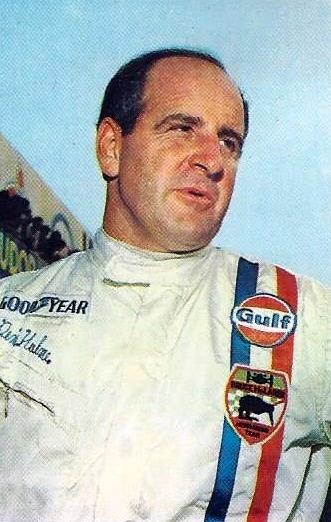
The Underdog’s Crown: 1967 and the Brabham Miracle
If you’re looking for a fairy tale, look elsewhere. Hulme’s 1967 World Championship was not won with a flourish, but with relentless consistency and an iron will. The Brabham-Repco was not the fastest car on the grid—far from it. But it was reliable, and so was Hulme. He won only two races that year, at Monaco and the Nürburgring, but finished on the podium in six others. In a season where Jim Clark dazzled and Jack Brabham brooded, it was Hulme who quietly amassed the points.
Denny Hulme’s dislike of celebrity and preference for anonymity made him the most low key of champions. He hated fame, had no trace of vanity and found social functions an agony.
Formula 1 Hall of Fame
His championship was sealed not with a dramatic last-lap overtake, but with a measured drive to third in Mexico, enough to edge out his boss Jack Brabham by five points. Jim Clark, who won the race, famously invited the embarrassed Kiwi to share the victor’s laurel wreath on the podium—a gesture that said more about Hulme’s standing among his peers than any headline ever could.
For a detailed look at Hulme’s career, see the official F1 Hall of Fame: Denny Hulme | Formula 1®
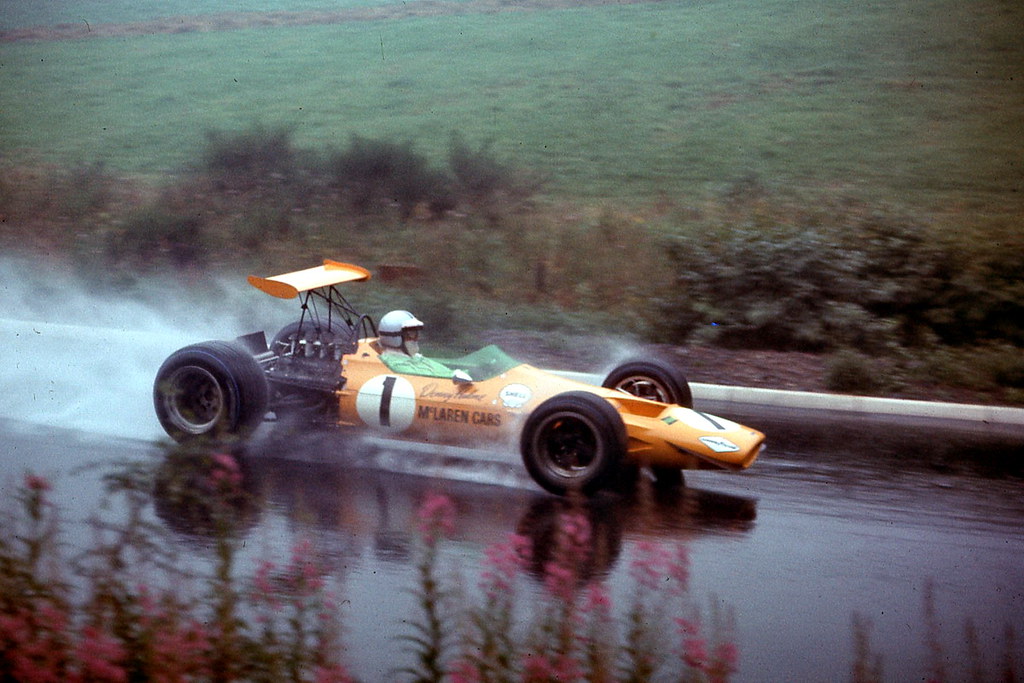
The Bear and the Bruce: McLaren’s Quiet Revolution
After his championship, Hulme joined Bruce McLaren’s fledgling team. The “Bruce and Denny Show” would become the stuff of legend in Can-Am, but in Formula 1, it was a slow burn. McLaren was not yet the powerhouse it would become, and Hulme was rarely the favorite. Yet, he delivered the team’s first F1 wins—at Monza in 1968, no less, against the might of Ferrari and Lotus on their home turf.
He just loved racing and spending time with his family and closest friends. Bruce McLaren was one of these and they teamed up to race McLaren’s cars in the Can-Am championship, which became known as the ‘Bruce and Denny Show,’ such was their dominance when this North American series was at the height of its popularity.
Pirelli Racing Spot
The partnership was marked by tragedy as well as triumph. Bruce McLaren’s death in 1970 hit Hulme hard, as did the loss of Peter Revson in 1974. Yet, through it all, Hulme remained the team’s anchor, delivering points and wins when the odds were against him. His final F1 victory came in Argentina in 1974, a race few expected the veteran to win. It was a fitting coda for a career built on defying expectations.
The Reluctant Hero: Reputation and Legacy
Hulme’s reputation among his peers was one of respect, even awe. He was known as “The Bear” for his gruff exterior and stocky build, but those who knew him saw a sensitive man who expressed himself best behind the wheel. He was not a natural with the press—twice awarded the journalists’ “Lemon Prize” for being the least cooperative driver—but he was fiercely honest and utterly uninterested in PR games.
Jack and Denny didn’t talk much at the best of times. But in 1967 what used to be extraordinarily limited conversation became almost non-existent!
Chris Amon
In a sport that rewards the loudest voices, Hulme let his driving do the talking. He remains the only New Zealander to win the Formula 1 World Championship, a fact that stands as a rebuke to those who equate charisma with greatness.
Underdog Moments: When the Odds Were Against Him
Hulme’s career is a catalogue of underdog moments. He was never the fastest qualifier—his only pole came at Kyalami in 1973—but he was a master of survival and opportunity. At Monaco in 1967, he won on a day marred by tragedy, keeping his head while others lost theirs. At the Nürburgring, he outlasted faster rivals on the most treacherous circuit in the world. At Monza in 1968, he delivered McLaren’s first win against all odds.
For a deeper dive into Hulme’s greatest races, see: On this week #25: Denny Hulme | Pirelli
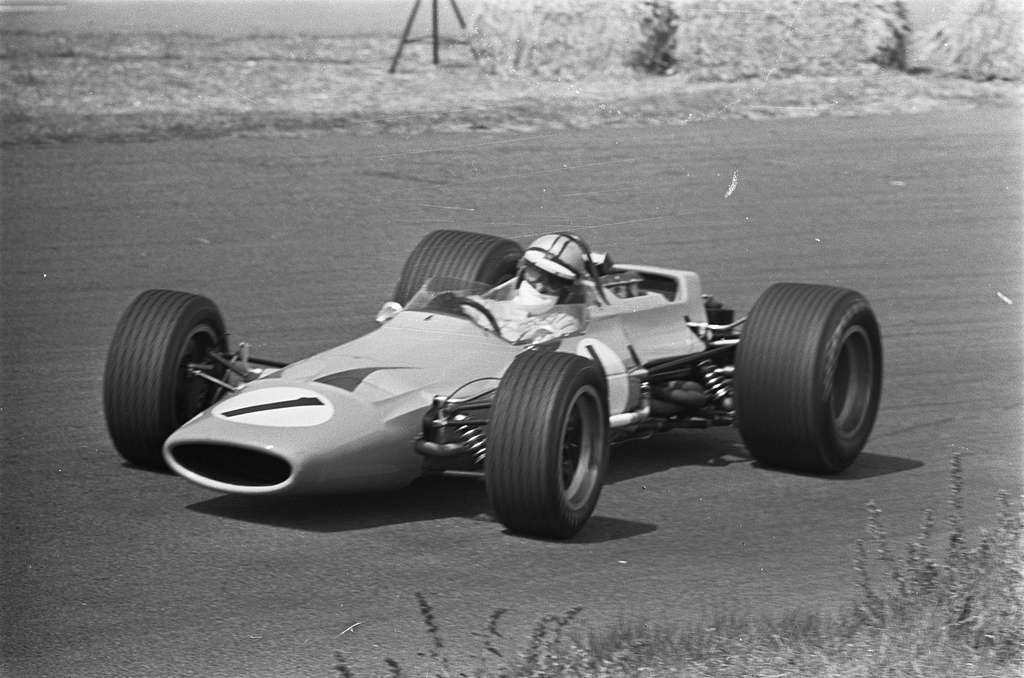
The Bear’s Final Lap
After retiring from Formula 1, Hulme continued to race in touring cars and even tried his hand at truck racing. He died as he lived—behind the wheel—suffering a heart attack during the Bathurst 1000 in 1992. He was the first F1 World Champion to die of natural causes, a final twist of fate for a man who had survived the most dangerous era in motorsport.
His legacy endures not in statues or soundbites, but in the quiet respect of those who know what it means to win when no one expects you to. In the words of Motor Sport Magazine, Greatness is defined by a heady cocktail: raw ability, intelligence, dedication, style, charisma, ethics, determination, and the sheer impact these figures made on their sport and on fans.
The Numbers Don’t Lie
Here’s a snapshot of Denny Hulme’s Formula 1 career:
| Statistic | Value |
|---|---|
| World Championships | 1 (1967) |
| Grand Prix Starts | 112 |
| Wins | 8 |
| Podiums | 33 |
| Pole Positions | 1 |
| Fastest Laps | 9 |
| Teams | Brabham, McLaren |
| First Win | 1967 Monaco GP |
| Last Win | 1974 Argentine GP |
Why Hulme Still Matters
In 2025, as Formula 1 debates the merits of DRS, sprint races, and social media engagement, Denny Hulme’s story is more relevant than ever. He reminds us that the sport’s soul lies not in the spectacle, but in the struggle. That the greatest victories are often won by those who never ask for applause. And that sometimes, the true measure of a champion is not how loudly he roars, but how quietly he endures.
If you want to see the man in action, here’s a classic clip: Denny Hulme, Grand Prix of Great Britain, Brands Hatch, 1968
Waste a bit more time
- Read the full F1 Hall of Fame entry: Denny Hulme | Formula 1®
- Explore his greatest races: On this week #25: Denny Hulme | Pirelli
- Dive into the 100 greatest racing drivers: Motor Sport Magazine
- For a taste of the era, check out Pete Lyons’ memoir: My Travels On Racer Road: Can-Am and Formula 1 in their golden age
